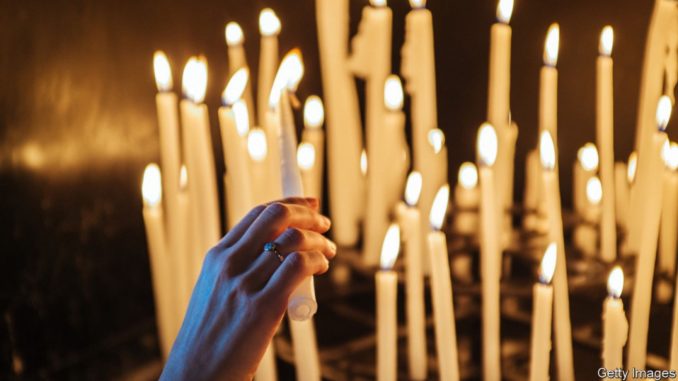
WE USED to leave it up to God. Someone fell seriously ill, we lit candles and prayed for him not to die. Somebody was dying, we lit candles and prayed for him to die painlessly.
Then modern medicine came. With its fabulous drugs. And we could leave it up to medical doctors. They administered the right drugs and saved people and prolonged their lives. Even death could be left up to them. Someone was beyond saving and suffered too much, they administered a bit more of the pain relief and yet a bit more and a bit more. And the patient gracefully passed away.
But sometimes the doctors didn’t do that and family members sat by the patient’s bed for days and weeks and saw him being kept alive by machines and drugs and suffer in circumstances no one finds especially dignified. This led to a change of attitudes in the Western world. As a patient, we don’t just leave it up to the medical staff, we tell them when we’ve had enough. If we are not in a state to tell, we have a living will and loved ones who will, based on that will, tell the doctors.
Now, as soon as you officially tell the staff to hasten death, it gets complicated. Things need to be done according to the law. And the law does not allow, not even in most liberal Western countries, for a patient to get his doctor to help him.
There are a few exceptions such as Switzerland (a stubbornly self-determined direct democracy), the Benelux (irritatingly liberal parliamentary monarchies), seven American states (taking “the land of the free” seriously) and Canada. In the end it comes down to this: every country has the assisted-dying law it deserves. Or, rather, the assisted-dying law which fits its culture and tradition.
Right-to-die organisations have sprung up across the world to make the case for it. Assisted dying is supported by a majority of citizens in today’s rapidly ageing societies. Campaigners have been ceaselessly fighting for it for decades in Australia, Japan, South Africa, France, Britain, Scandinavia and a few Latin American countries. But instead of liberalising these laws, some democracies such as Germany have toughened up laws, or even punish the promotion of assisted dying.
Deciding on one’s own way and day of dying simply does not fit the culture of these countries, even if many citizens are not against it or outright in favour of it.
Going to Switzerland might still be the only choice for several more years. Or going back to praying—this time for lawmakers to finally think beyond cultural traditions and to take patients seriously, even if they won’t be tomorrow’s voters.
Bernhard Sutter is the director of the Swiss assisted-dying organisation, Exit, and has been involved in the assisted-dying movement for over a decade
END

Be the first to comment